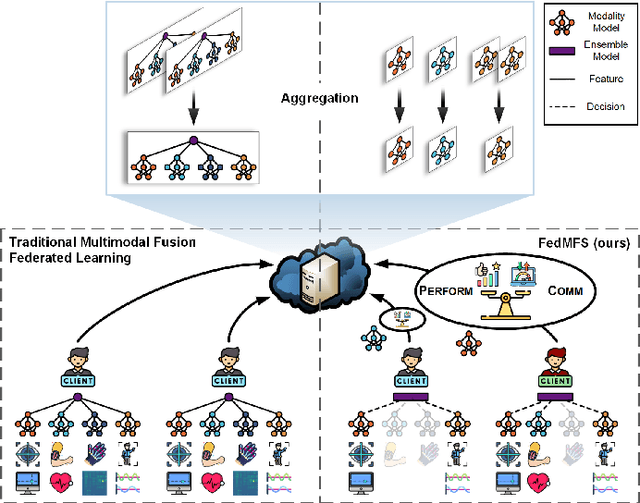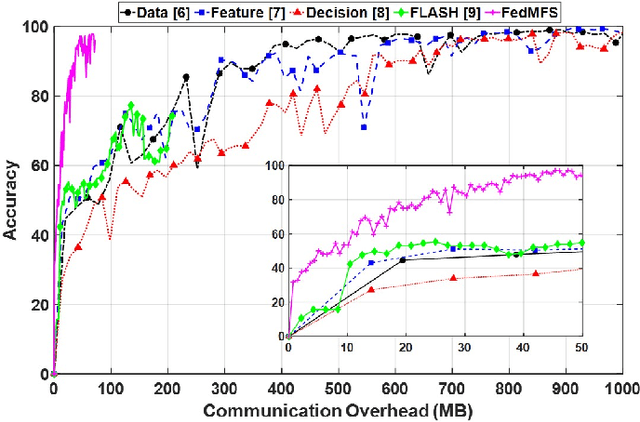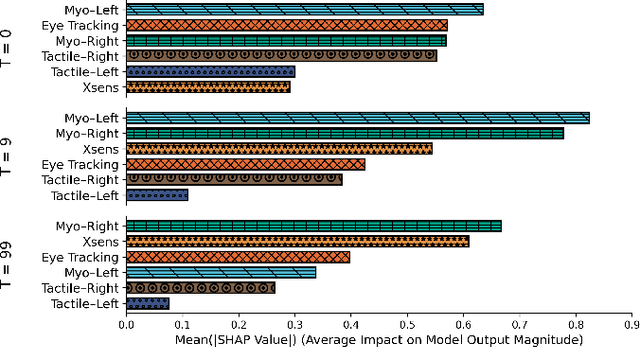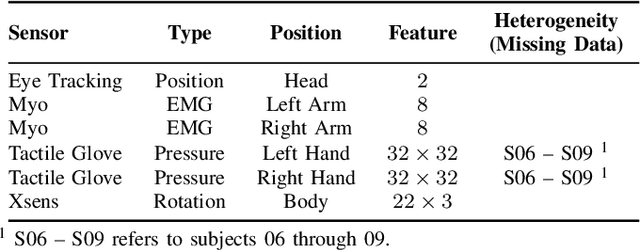Stanislaw H. Żak
FedNMUT -- Federated Noisy Model Update Tracking Convergence Analysis
Mar 24, 2024Abstract:A novel Decentralized Noisy Model Update Tracking Federated Learning algorithm (FedNMUT) is proposed that is tailored to function efficiently in the presence of noisy communication channels that reflect imperfect information exchange. This algorithm uses gradient tracking to minimize the impact of data heterogeneity while minimizing communication overhead. The proposed algorithm incorporates noise into its parameters to mimic the conditions of noisy communication channels, thereby enabling consensus among clients through a communication graph topology in such challenging environments. FedNMUT prioritizes parameter sharing and noise incorporation to increase the resilience of decentralized learning systems against noisy communications. Theoretical results for the smooth non-convex objective function are provided by us, and it is shown that the $\epsilon-$stationary solution is achieved by our algorithm at the rate of $\mathcal{O}\left(\frac{1}{\sqrt{T}}\right)$, where $T$ is the total number of communication rounds. Additionally, via empirical validation, we demonstrated that the performance of FedNMUT is superior to the existing state-of-the-art methods and conventional parameter-mixing approaches in dealing with imperfect information sharing. This proves the capability of the proposed algorithm to counteract the negative effects of communication noise in a decentralized learning framework.
FedMFS: Federated Multimodal Fusion Learning with Selective Modality Communication
Oct 10, 2023



Abstract:Federated learning (FL) is a distributed machine learning (ML) paradigm that enables clients to collaborate without accessing, infringing upon, or leaking original user data by sharing only model parameters. In the Internet of Things (IoT), edge devices are increasingly leveraging multimodal data compositions and fusion paradigms to enhance model performance. However, in FL applications, two main challenges remain open: (i) addressing the issues caused by heterogeneous clients lacking specific modalities and (ii) devising an optimal modality upload strategy to minimize communication overhead while maximizing learning performance. In this paper, we propose Federated Multimodal Fusion learning with Selective modality communication (FedMFS), a new multimodal fusion FL methodology that can tackle the above mentioned challenges. The key idea is to utilize Shapley values to quantify each modality's contribution and modality model size to gauge communication overhead, so that each client can selectively upload the modality models to the server for aggregation. This enables FedMFS to flexibly balance performance against communication costs, depending on resource constraints and applications. Experiments on real-world multimodal datasets demonstrate the effectiveness of FedMFS, achieving comparable accuracy while reducing communication overhead by one twentieth compared to baselines.
 Add to Chrome
Add to Chrome Add to Firefox
Add to Firefox Add to Edge
Add to Edge